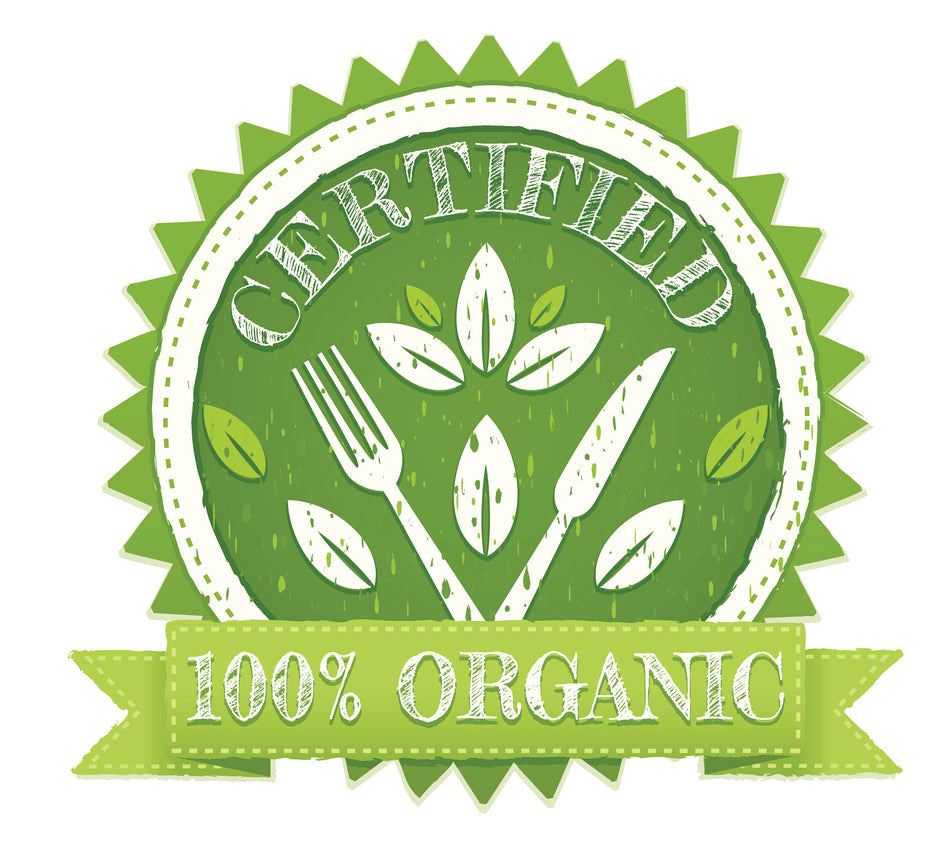There is some debate about the actual value of 'organic' and what it means to consumers. The organic industry is growing rapidly with 81% of households now reporting they purchase 'organic' at least occasionally. And the range of categories in which 'organic' is now an option, has increased sixfold.
So, what is the real value of organic? Is it healthier, is it safer, and is it really organic? The answers are not quite so obvious.
Two recent studies have sparked considerable debate about organic foods and their nutritional value versus conventional foods. And the evidence is far from conclusive.

A report called the Stanford Study summarized here found little evidence to suggest that organic foods offered any more nutritional health benefits than conventionally-grown foods. And this has stirred quite a lot of discussion.
In a more recent paper from the UK, the data suggests that there may be more significant amounts of antioxidants found in organically grown food. And this finding also has sparked debate.
Despite the research and the findings, or the lack of conclusive evidence, there are two merits to choosing 'organic' that we can all agree on.
- While not necessarily providing you more nutrients or vitamins, organic options do reduce the number of unwanted chemicals and potentially harmful toxins you ingest. You probably don't need much convincing that eating foods that reduce the risk of exposure to toxins and potentially harmful chemicals is a reasonably good idea.
- Whether it is the foods you eat, or the skincare products you use, or event the kitchen utensils you cook with, a key benefit, and an essential aspect of 'organic' is that it is better for the environment. Better for the environment means that it is less damaging for the soil, and safer for the farmers and workers that handle it.
How does this affect your choice of eating and kitchen utensils?

The same advantages apply. Whether you are talking about the food you eat or the kitchen utensils you use to make the food you eat. The fewer unnatural and unknown ingredients, the better.
Think of it like this. Modern plastic cooking utensils and silicone cooking utensils are the 'processed foods' of kitchen wares. These are derived from petroleum and contain potentially harmful ingredients. Even popular brands like oxo, joseph joseph and Kitchenaid use any combination of plastic, silicone, adhesives, and other unnatural ingredients in these compounds.
Which is why we turn to bamboo. Bamboo is an exceptional material in the kitchen. It doesn't scratch your cooking surfaces; it is heat-resistant and anti-microbial. Plus, it is lightweight, and also super durable. It is a natural solution.
But, not all bamboo is the same. Here's the difference.

bambu® brand kitchen utensils are the only cooking tools made from certified organic sources. By certifying our origin of wild-grown bamboo every year, we can assure people that we have eliminated the potential exposure to harmful chemicals. And similarly, for the farmers, our certified bamboo is safer for them to harvest and safer for the land.
bambu utensils are also made without glues or adhesives. These kitchen utensils are all made from a single piece of certified bamboo, not strips of bamboo laminated together with glue. Ours are hand-cut, sanded, and finished without glues. Wood or bamboo utensils made with glue often split over time. More worrying is that the adhesives can leach into your foods, especially if you are cooking at high temperatures.
bambu kitchen tools are hand finished with an organic, food-safe oil; Not lacquer or cheap coatings that are more often used to mask irregularities in the material or poor craftsmanship. These inferior coatings can chip and flake off, or leach into your cooking.
That's why only one brand carries the familiar and trusted NOP Organic Seal. The same seal you look for on your fruit and vegetables, and skincare too.
The world's supply of bamboo is grown in China. However, it is not always known how, and under what conditions the bamboo is grown and harvested, and produced.
For our cooking tools, eating utensils, and toddler silverware, organic = safety. Organic gives people the necessary assurance of a safe and well-managed renewable resource, so it is safe for workers and safe for families.
Organic certification audits are conducted annually by an authorized 3rd party certifying group that audits the original material source and the production practices.
bambu offers a wide range of cooking utensils sets and kitchen tools to choose from. Here are several of our customers favorite cooking utensils - 
Cooking Utensil Sets
Set of 3 Tools - 'Kitchen Basics' Cooking Utensils
Set of 3 Tools - 'Give It A Rest' Cooking Utensils
Set of 3 Tools - 'Essential Spoons' Utensils
Set of 4 Tools - 'Cooks Set' Kitchen Tools

Kitchen Tools
Organic Bamboo Slotted Spoon
Organic Bamboo Wok Spatula > read more about this indispensable kitchen tool
Organic Bamboo 'Spoontula' hybrid kitchen tool
Organic Bamboo 'Scraping Spatula' - the workhorse of the range




You have many more cooking tools and prep utensils to choose from. See More
Kids Cutlery
Organic Bamboo Toddler Cutlery
Organic Bamboo Kids Spork
Organic Bamboo Infant Feeding Spoons



Check out more from the bambu KIDS range of toddler silverware and kids cutlery here.

Eating Utensils and Cutlery
Among our range eating utensil options here, check out our most popular sets.
Grubware® Travel Cutlery Sets
Grubware® Complete Eat/Drink Kit

While buying organic foods may not provide nutritional advantages, organic is healthier for the environment and healthier for our homes and families. And when it comes to kitchen tools, or cutlery for kids, or feeding utensils for babies, bambu offers natural, safe, and well-made products, and the assurance that these products are safe in the home, and good for the environment too.





